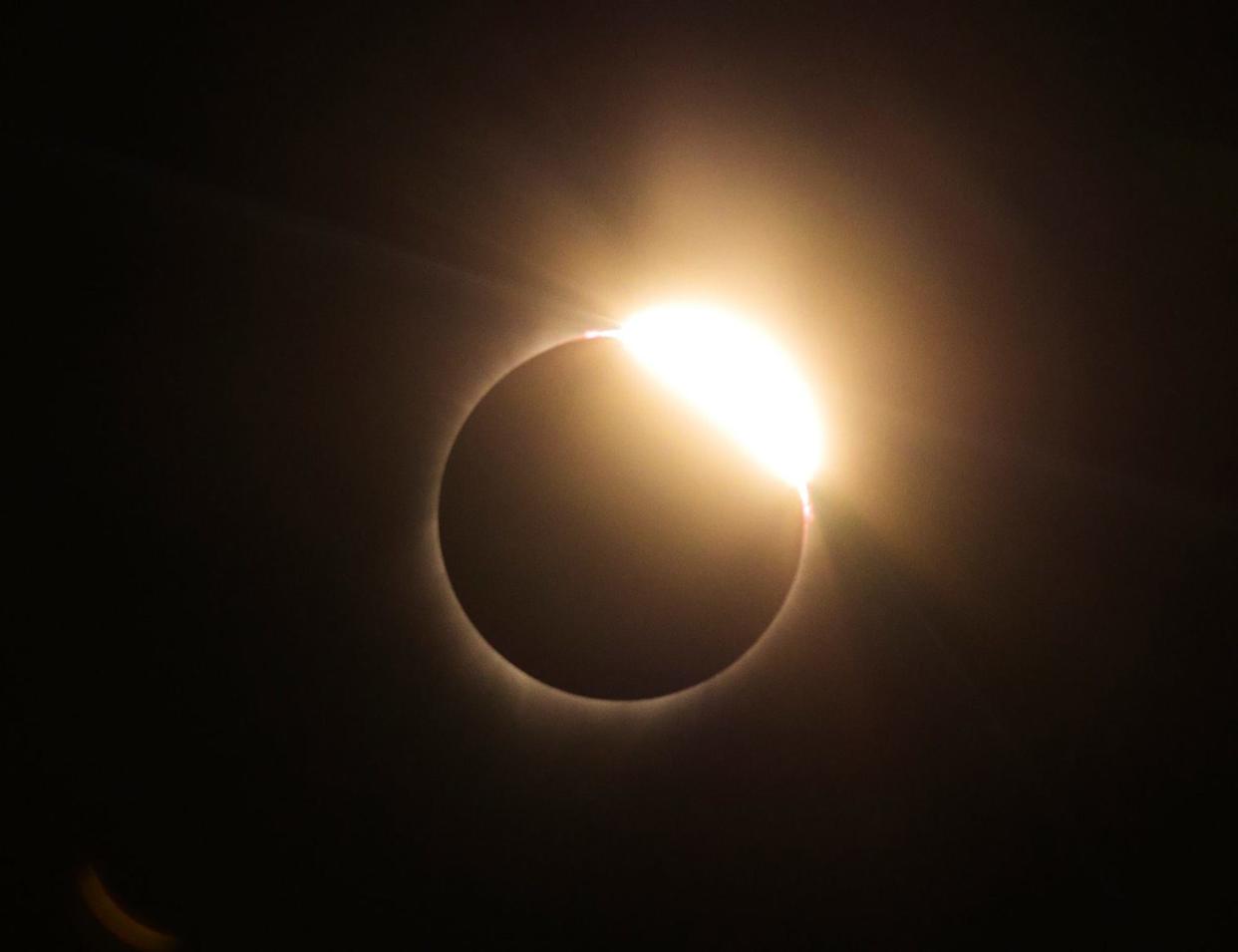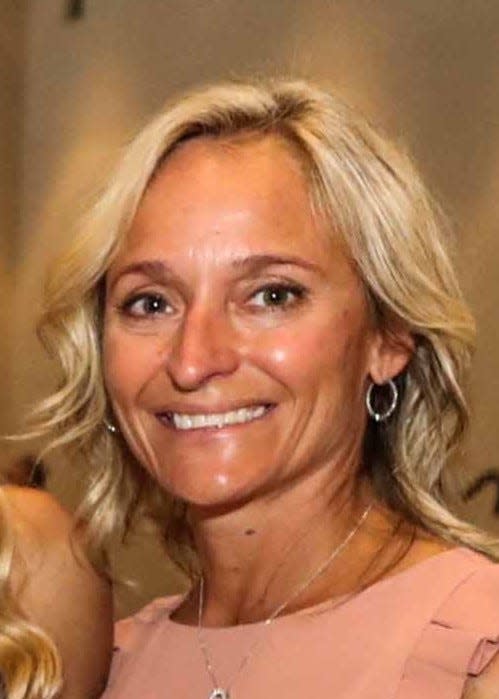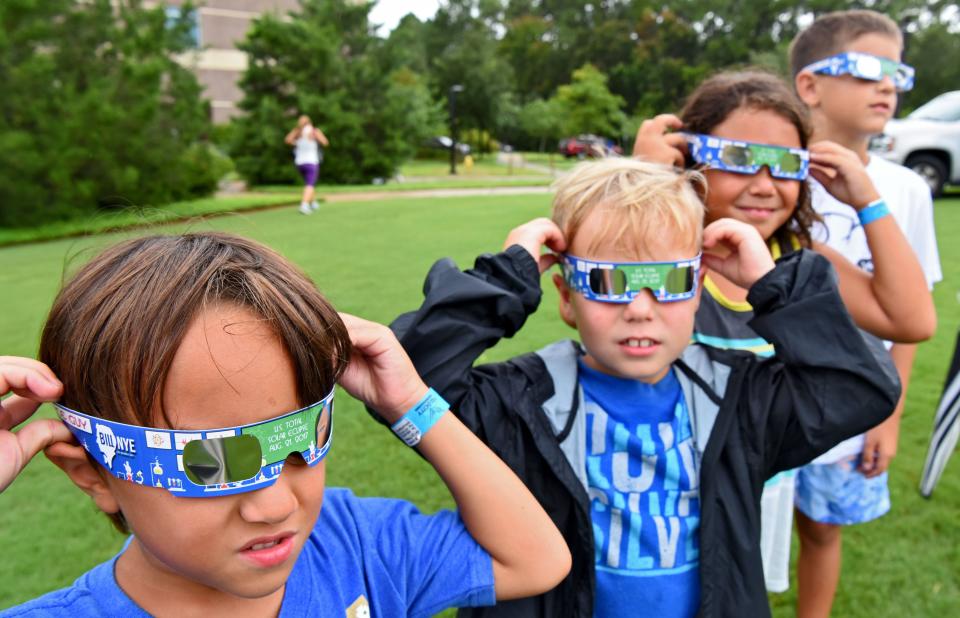When solar eclipse dims skies, Volusia educators hope light goes on for science students

When the moon passes in front of the sun during next week's solar eclipse, a clear sky will darken abnormally enough to provoke questions. Why? How?
And that is the perfect laboratory for teaching science, says Jennifer Taylor, Volusia schools' science coordinator.
“Science is the study of the world around us and that always begins with some type of observation and then you ask a question and then from there, that’s when the real science begins," she said in a recent interview.

Volusia County schools is making next Monday afternoon a possible in-school field trip for middle school science students ― even as some other school districts, citing safety, will restrict students from going outside during the eclipse.
“We’ve got to get kids as many experiences as we can with the world around them, especially with these natural phenomena, because we want them to begin asking questions on their own," Taylor said. "The teachers shouldn’t be the ones asking all the questions and bearing all the knowledge. That should be coming from our kids.”
Volusia County is about 800 miles from the path of totality, when a full eclipse will slip into darkness. Floridians will experience a partial eclipse, which will cause the sky to darken more like a cloudy day than night-like darkness. Still, some educators are eager to let students experience it.
Among the schools participating in Volusia's in-school field trip will be Creekside, Ormond Beach, Galaxy, River Springs, Heritage and Hinson middle schools.
In Florida, elementary and middle schools teach comprehensive science.
“They actually get a little bit of everything each year. They get earth, life and physical every single year, and it doesn’t repeat what concepts they are learning within those,” Taylor said.
However, peak viewing time for the eclipse will be just after 3 p.m. ― too late for Volusia County elementary schools to use it as a science experiment, but just in time for middle and high schools.
A teacher's enthusiasm
Mona Chopra, an eighth-grade science and advanced science teacher at Creekside Middle School in Port Orange, said she started planning for Monday back in October. She realized a total solar eclipse spanning such a wide distance across the United States won't be for another 21 years.
"It's not going to happen again until 2045," Chopra said. "And none of these students are going to be in school or college at that time."
Also, eclipses ― total, partial and annular ― are part of the curriculum for eighth grade. Students delve into the phases of the moon, how lunar and solar eclipses cause high tide, why humans see only one side of the moon and why, during a lunar eclipse the moon appears red and not black, she said.

Chopra experienced a total solar eclipse when she lived in India and the 2017 partial eclipse in Florida with her family, prior to becoming a teacher. She wrote a grant to the School Advisory Council for funds to purchase 100 NASA-approved viewing glasses.
"I'm excited about it. I hope it's not cloudy or raining," she said.
Some districts steer clear of eclipse dangers
Where some school districts are embracing the eclipse, others are taking caution due to the potential for damage that viewing the sun can do to the human eye.
Kevin Christian, director of public relations for Marion County Public Schools in Ocala, said schools there are prohibiting outdoor viewing of the eclipse.
"We encourage teachers to incorporate educational activities and live streaming options to engage students safely. Educational Science activities that are aligned to applicable standards should occur indoors," Christian said in an email. "If students or staff happen to be outside during the eclipse (car line, heading to the bus, etc.), we are urging everyone to use caution."
Flagler County Schools, during the window of eclipse viewing, will limit elementary students' outside activities.
"Protect your eyes! Never gaze directly at the sun, even during a partial eclipse," a Flagler schools directive reads. "Though many people are purchasing the certified solar viewing glasses with the ISO 12312-2 certification, we ask that families not send these glasses, or any similar device, to school with their child."
Volusia schools will have guidelines
Back in Volusia County, administrators provided school principals and teachers with guidelines to ensure students' safety during the field trip. They include:
Those students participating must be provided with solar-viewing glasses marked ISO 12312-2 certified, and the students must wear them at all times while viewing the eclipse.
Requiring students who participate in the eclipse viewing to have a signed permission slip from their parents.
Students whose parents prefer they stay inside will have an alternative classroom assignment.
While teachers and administrators hope the engagement from the eclipse-viewing activity will translate to heightened classroom performance, the assignment carries more meaning than that, Taylor said.
"It’s about getting kids excited, wanting to learn more, wanting to continue on in science," she said. "And even if we’re not raising the next astronaut, or raising the next meteorologist, or the next doctor, we’re hoping that we’re raising an informed, science-literate citizen that is able to make good decisions from what they’ve learned on how to vote, as well as just making their own healthcare decisions based on what they’ve learned.”
Testing, Testing: ERAU researchers will launch 3 rockets during April 8 solar eclipse. Here's why.
This article originally appeared on The Daytona Beach News-Journal: Volusia schools plan in-school field trip for April 8 solar eclipse

